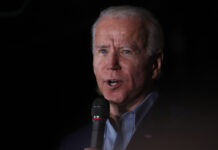
A growing number of senators are expressing concerns about the Pentagon's handling of unidentified aerial phenomena (UAP), commonly known as UFOs. The issue has come to the forefront as lawmakers accuse the Department of Defense of insufficient transparency and potential cover-ups.
Prominent senators, including Kirsten Gillibrand (D-NY) and Marco Rubio (R-FL), have criticized the Pentagon for its handling of UAP investigations. They argue that the Pentagon's All-domain Anomaly Resolution Office (AARO) is not being fully transparent with the public or Congress about its findings. The senators are particularly concerned that the office has not provided clear and comprehensive reports on UAP sightings and potential threats.
The Hill: ‘Key Senators Believe the Pentagon UFO Office is Lying or Incompetent’
Legislation alluding to illegal UAP programs is a remarkable rebuke of AARO, which also bungled several reports and appears clueless about a series of stunning UFO incidents. https://t.co/3xEVpTfOmQ
— MarikvR (@MvonRen) June 11, 2024
In response to these concerns, Senator Gillibrand has pushed for increased funding for AARO through the 2024 National Defense Authorization Act. This funding is aimed at enhancing the office’s capabilities to monitor and investigate UAPs more effectively, especially in light of recent incidents involving foreign surveillance balloons. The increased funding is also intended to boost transparency and reduce the stigma associated with UAP research.
The controversy intensified following allegations by whistleblower David Grusch, a former intelligence officer, who claimed that the government has been involved in a decades-long program to retrieve and reverse-engineer alien spacecraft.
Elon Musk Has Been Read In to Parts of The UFO Program
According to newly declassified documents, top senators met in 2011 with scientists at at the Department of Homeland Security to advocate for a formal reverse-engineering program to glean new technology from recovered alien… pic.twitter.com/iojmCKXi4C
— Mike Colangelo (@MikeColangelo) May 11, 2024
Despite these claims, AARO's investigations, led by its former director Sean Kirkpatrick, have found no empirical evidence supporting such allegations. Kirkpatrick emphasized the need for scientific rigor in studying UAPs and criticized the reliance on conspiracy theories without verifiable evidence.
Sean Kirkpatrick, who served as the head of AARO, has voiced frustrations about the Pentagon’s reluctance to engage the public on UAP issues. He argued that the lack of information allows conspiracy theories to flourish, which undermines public trust. Kirkpatrick also highlighted bureaucratic challenges that hindered his efforts to increase transparency and public engagement during his tenure.
In an effort to address these issues, lawmakers have proposed legislative measures requiring current and former government contractors to turn over any data related to unidentified objects. This initiative is part of a broader push to ensure that all relevant information about UAPs is disclosed to the Pentagon and, subsequently, to the public.
The ongoing debate over the Pentagon's UAP investigations underscores the complex intersection of national security, public interest, and the quest for transparency. As the 2024 elections approach, it remains to be seen how these legislative and organizational changes will impact public perception and governmental accountability regarding UFOs.











